China explosions: Toll rises and toxin fears grow after 'sea of fire'
As a survivor is pulled from the site of the explosions in Tianjin, more families are evacuated
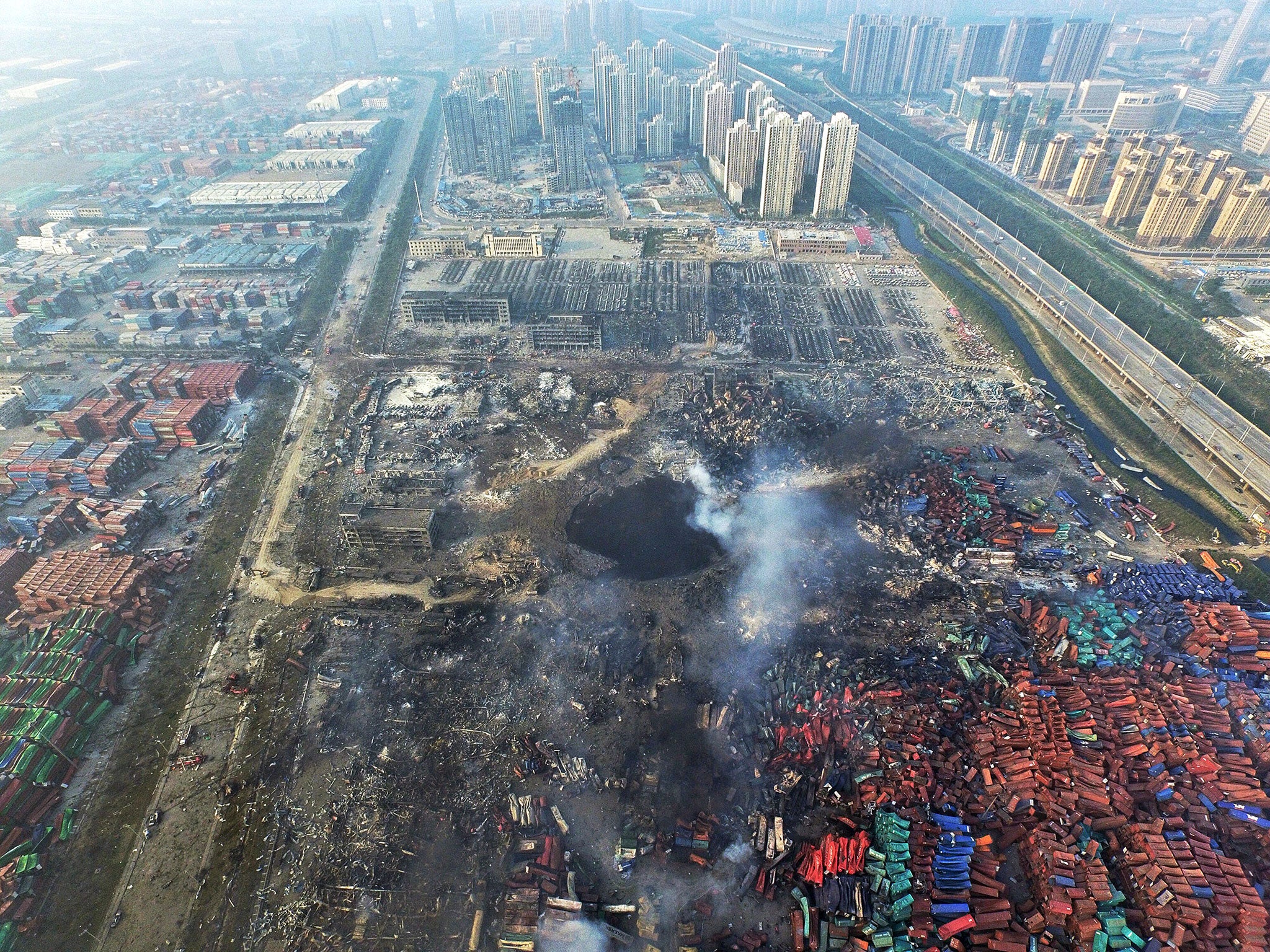
Chinese authorities ordered an evacuation from a near-two-mile area around the remnants of a chemical warehouse destroyed by a series of explosions in the city of Tianjin, over growing as concerns grew at about the level of toxic contamination at the site.
The blasts and ensuing inferno have claimed the lives of at least 104 people, officials said, with more than 700 people others injured – 33 of them critically – and who are being treated in hospital. The death toll is expected to rise further in the coming days.
The evacuation order to move back three kilometres (1.9 miles) was put in place after police confirmed the presence of the highly toxic chemical sodium cyanide near the site, allied to a change in wind direction that could leave residents vulnerable.
About 6,300 people have been displaced by the blasts, Xinhua, the state-run news agency reported, with evacuees being moved to take refuge in a school near the industrial site.
The tight rein that authorities keep over the release of information after such events in China has left a number of questions that are yet to be unanswered.
Foremost in the minds of many relatives is finding out where their family members are. A number of Angry relatives of missing firefighters and emergency services workers stormed a government news conference yesterday, [SAT] to demand demanding any information on their loved ones who have had not been seen since the explosions that began on of Wednesday night, with many of them members of the emergency services that responded to the incident.
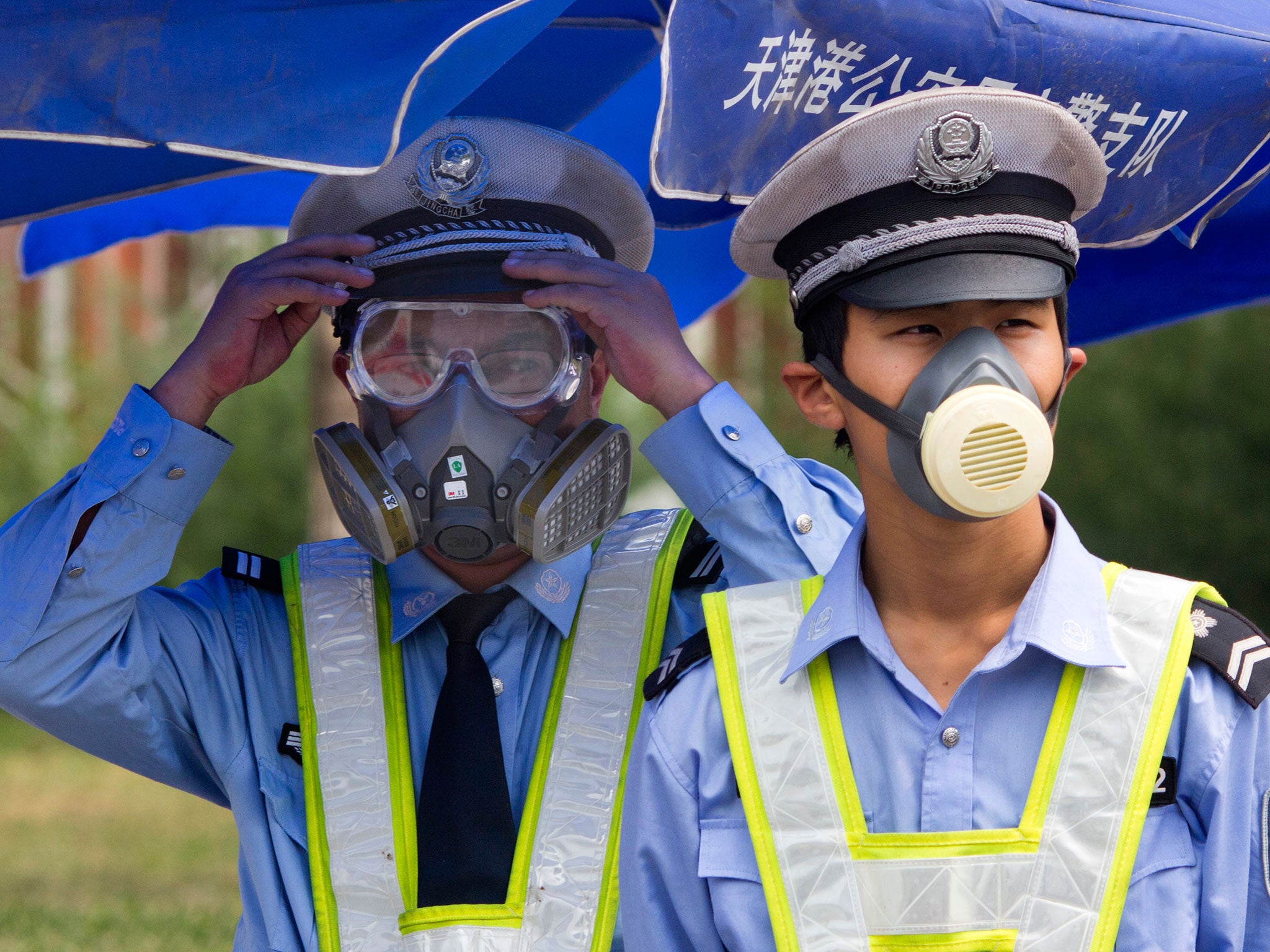
“[The authorities] didn’t notify us at all,” said Liu Huan, whose son Liu Chuntao has been missing since late Wednesday, according to the Associated Press. “Our son is a firefighter, and there was a team of firefighters who lost contact. We couldn’t contact him.”
Liu Longwang said she had not heard a word on about her son Liu Ziqiao, also a firefighter. “We are extremely worried,” she said. “He just turned 18.”
There appeared to be one bit of miraculous news yesterday, with state media reporting that authorities had recovered a survivor from a shipping container reportedly 50 metres from the blast epicentre. Television showed the man being carried to safety on a stretcher by a group of soldiers wearing gas masks. Further explosions and fresh fires hindered the hunt for other potential survivors. In one case at one point, heavy smoke from a fire engulfing several cars rose as high as 10 metres, accompanied by at least five explosions.
Another question – and one that looks set is likely to linger for a while – about is whether dangerous chemicals were being stored too close to residential compounds.
Chinese military soldiers equipped with nuclear, biological and chemical (nbc) equipment were trying to make safe the quantities of highly toxic sodium cyanide discovered on the blast site. The chemical is highly toxic and widely used in mining.
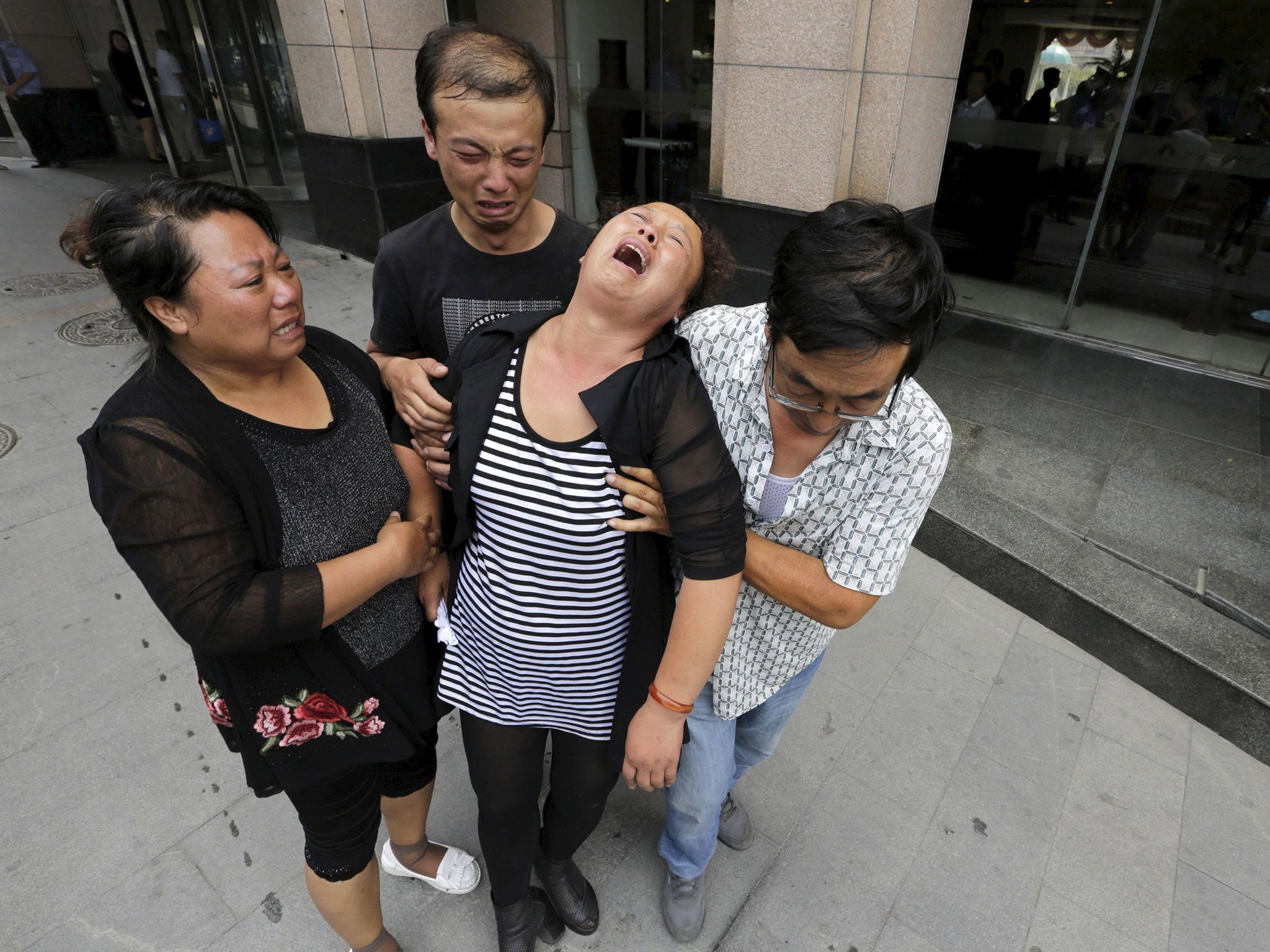
Local officials also have been pressed to explain why authorities permitted hazardous-goods warehouses storing hazardous materials so close to residential complexes and critical infrastructure, clearly in violation of the Chinese China’s rule that hazmat storage hazardous material it should be stored at least 1,000m meters (yards)1kmaway from homes and public structures away.
Unconfirmed reports from state media said that as much as 700 tons of sodium cyanide may have been stored in the warehouse – potentially up to 70 times more than it should have been holding at one time the limit, according to some reports sources.
Gao Huaiyou, vice head of Tianjin’s safety watchdog, admitted that sodium cyanide was possibly might have been stored in the warehouse but further confirmation was needed because the containers were not open, and some even not registered. He said he was unsure how much sodium cyanide, if any, was being held when the explosions occurred.
The Chinese authorities have acknowledged that it is they are unclear what was being stored in the warehouses run by Ruihai International Logistics, a hazardous goods handling company in Tianjin, one of the world’s top 10 cargo ports, 75 miles east of Beijing. The city has 15 million residents. “The information the management of the company provided is not consistent with our investigation,” Mr Gao said.
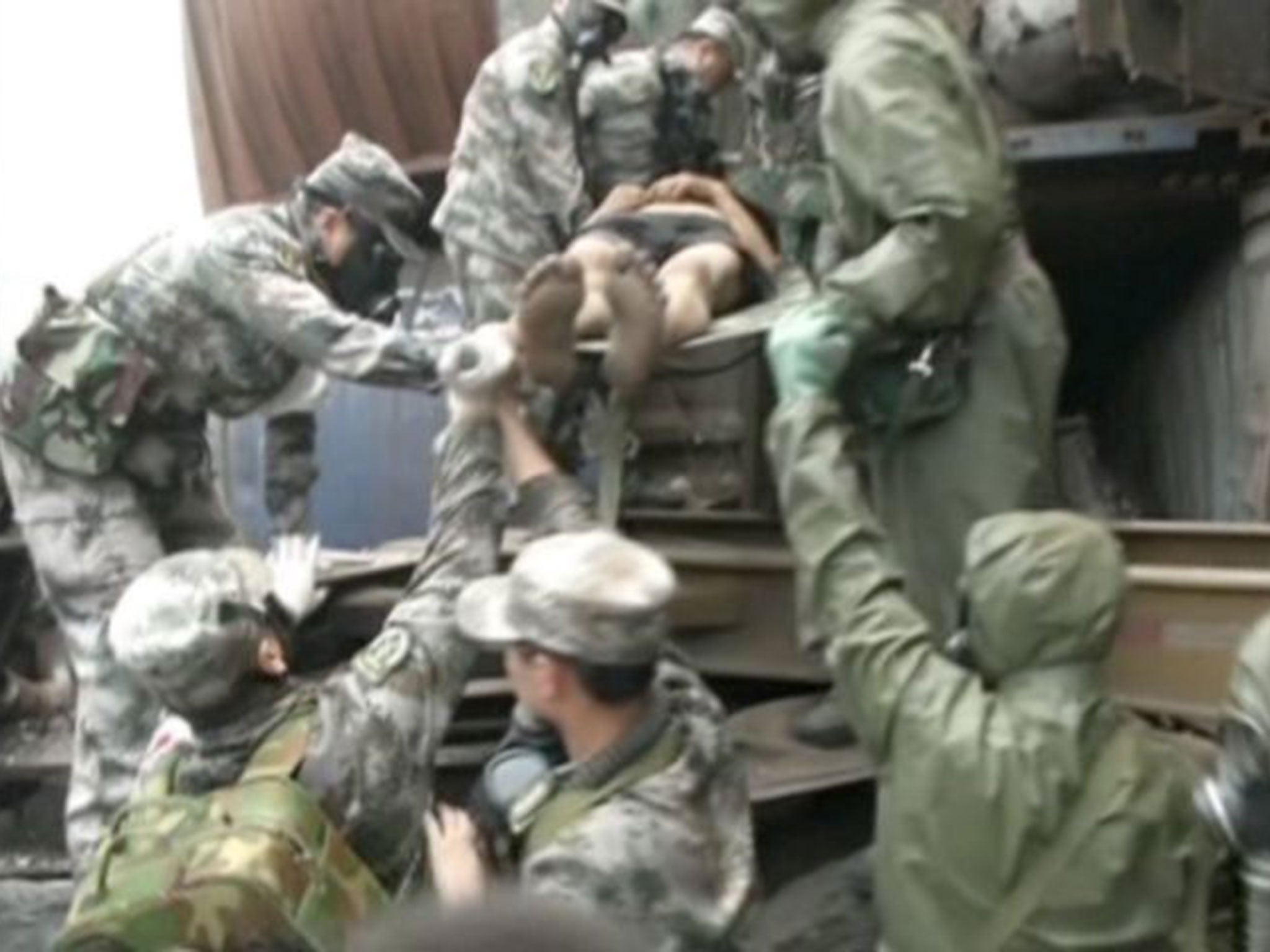
Authorities also detected the highly toxic hydrogen cyanide in the air at levels slightly above safety levels at two locations on Saturday, according to The state-run The Paper cited a Tianjin environmental official, Wen Wurui, as saying who was cited by the state-run The Paper. But the contamination was no longer detected on Saturday and there was no obvious impact on anybody in the area, the report said.
There are also Questions are also being asked about whether it s possible that firefighters might have triggered the blasts on Wednesday night, possibly because they were unaware that the warehouse contained of the presence of chemicals that could be ignited by water. The massive explosions happened about 40 minutes after the first reports of a fire at the warehouse and after an initial wave of firefighters arrived and, reportedly dousing some of the area with water.
There are widespread reports that the site contained extensive amounts of other toxic industrial chemicals, including calcium carbide, potassium nitrate and ammonium nitrate. Calcium carbide is used in PVC plastic production, while the other two chemicals are used in producing to make fertiliser and dynamite, although these could not be verified.
Specialist measures, including toxic gas detectors, have been set up and the authorities had closed sewers under the area to prevent further water contamination, according to Wang Dongsheng, director of the nuclear and chemical forces of the Beijing military area.
Police and military personnel manned checkpoints on roads leading to the blast sites, and helicopters were seen hovering overhead. and Journalists, as well as and residents were being kept out of the 3km zone.
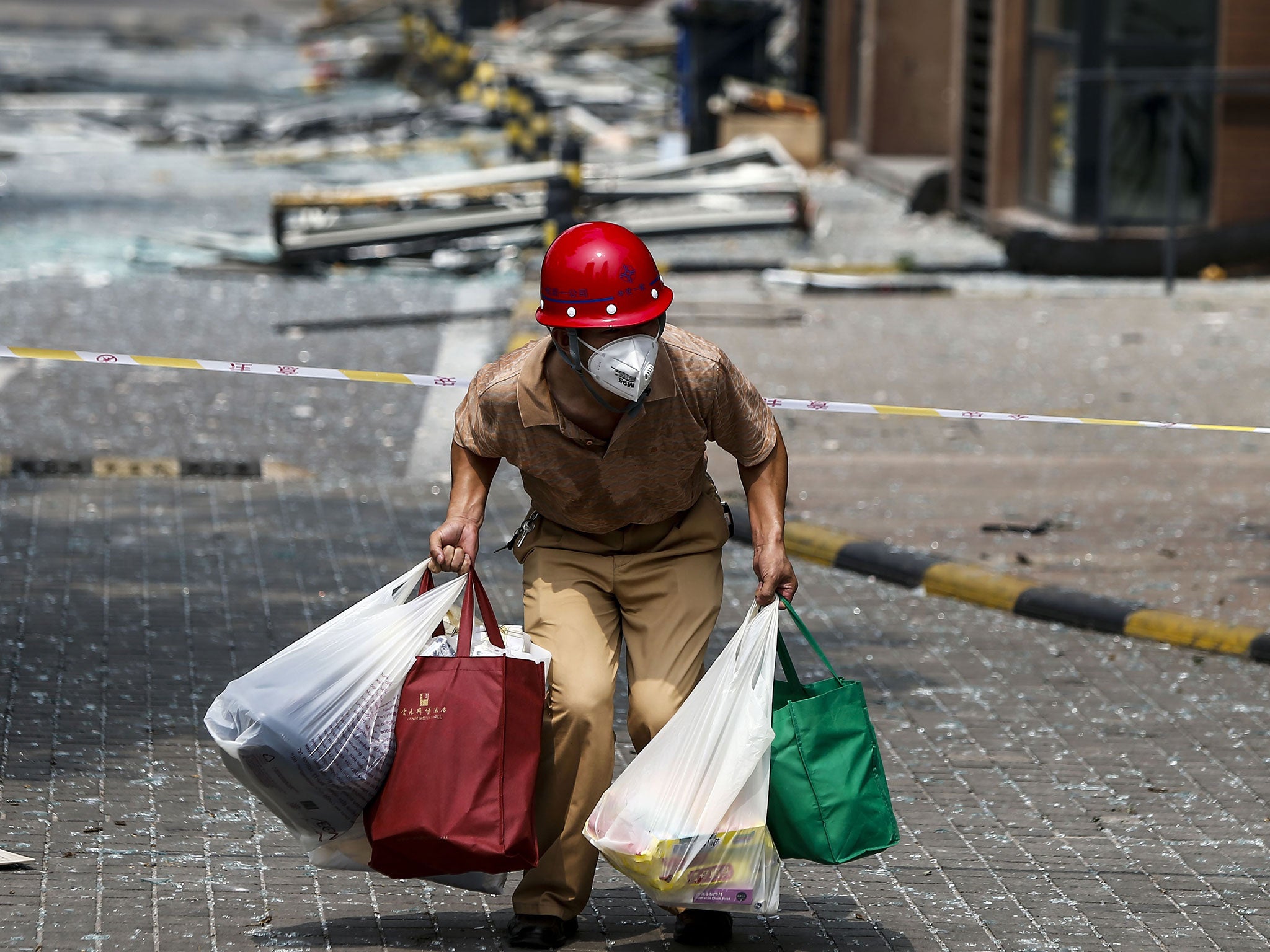
Chinese state media reported casualties among the first three squads of firefighters and police to respond have still not been established. More than 1,000 firemen were deployed to fight fought the inferno and it was reported last night that at least 21 are dead, 18 missing and 66 are being treated in hospital. The death toll makes the disaster the deadliest for Chinese firefighters in more than six decades.
Tianjin Fire Department head Zhou Tian said that the explosions occurred as reinforcements had arrived on the scene and were getting to work. “There was no chance to escape, and that’s why the casualties were so severe. We’re now doing all we can to rescue the missing.”
One surviving firefighter, 19-year-old Zhou Ti, was found on Friday morning and taken to a hospital. Doctors treating him described his survival as “miraculous”, adding that he escaped death mainly because he was covered by his fallen comrades. Mr Zhou had massive injuries, including burns and leg cuts.
From his hospital bed, he said on the state television CCTV: “I was knocked on to the ground at the first blast. I covered my head and don’t know what happened after that.”
Shockwaves from the explosions were felt by residents in apartment blocks several kilometres away in the city of 15 million people.
Lin Yujie, who lives in a nearby residential complex, said that when he initially first heard the blasts Wednesday night he thought they were a massive airstrike.
“It was just a sea of fire,” Mr Lin recalled. “We were really worried that there would be a second or third explosion and what we would do then.”
Join our commenting forum
Join thought-provoking conversations, follow other Independent readers and see their replies
Comments
Bookmark popover
Removed from bookmarks